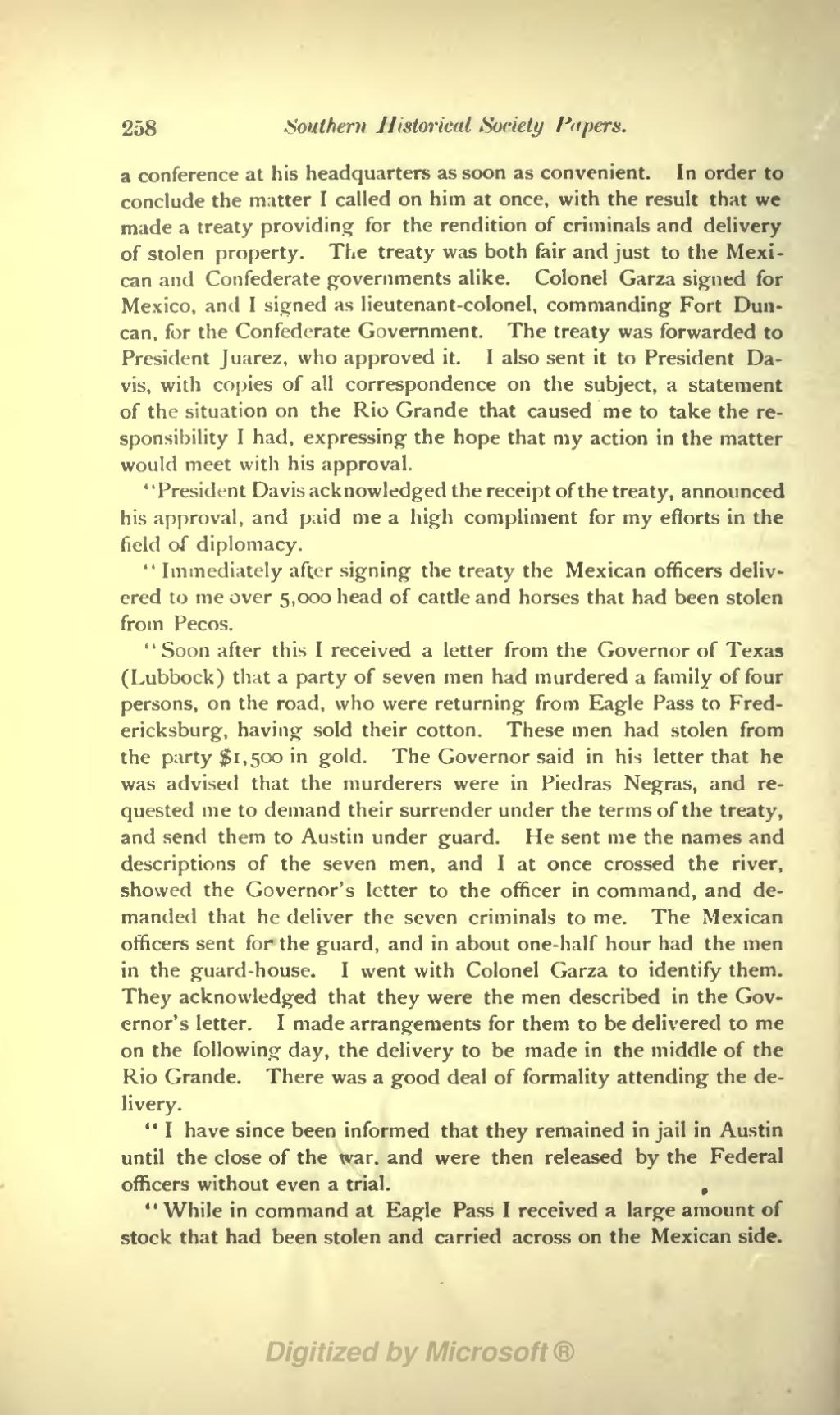258 Southern Historical Society Papers.
a conference at his headquarters as soon as convenient. In order to conclude the matter I called on him at once, with the result that we made a treaty providing for the rendition of criminals and delivery of stolen property. The treaty was both fair and just to the Mexi- can and Confederate governments alike. Colonel Garza signed for Mexico, and I signed as lieutenant-colonel, commanding Fort Dun- can, for the Confederate Government. The treaty was forwarded to President Juarez, who approved it. I also sent it to President Da- vis, with copies of all correspondence on the subject, a statement of the situation on the Rio Grande that caused me to take the re- sponsibility I had, expressing the hope that my action in the matter would meet with his approval.
"President Davis acknowledged the receipt of the treaty, announced his approval, and paid me a high compliment for my efforts in the field of diplomacy.
" Immediately after signing the treaty the Mexican officers deliv- ered to me over 5,000 head of cattle and horses that had been stolen from Pecos.
"Soon after this I received a letter from the Governor of Texas (Lubbock) that a party of seven men had murdered a family of four persons, on the road, who were returning from Eagle Pass to Fred- ericksburg, having sold their cotton. These men had stolen from the party $1,500 in gold. The Governor said in his letter that he was advised that the murderers were in Piedras Negras, and re- quested me to demand their surrender under the terms of the treaty, and send them to Austin under guard. He sent me the names and descriptions of the seven men, and I at once crossed the river, showed the Governor's letter to the officer in command, and de- manded that he deliver the seven criminals to me. The Mexican officers sent for the guard, and in about one-half hour had the men in the guard-house. I went with Colonel Garza to identify them. They acknowledged that they were the men described in the Gov- ernor's letter. I made arrangements for them to be delivered to me on the following day, the delivery to be made in the middle of the Rio Grande. There was a good deal of formality attending the de- livery.
" I have since been informed that they remained in jail in Austin until the close of the war. and were then released by the Federal officers without even a trial. ,
" While in command at Eagle Pass I received a large amount of stock that had been stolen and carried across on the Mexican side.
